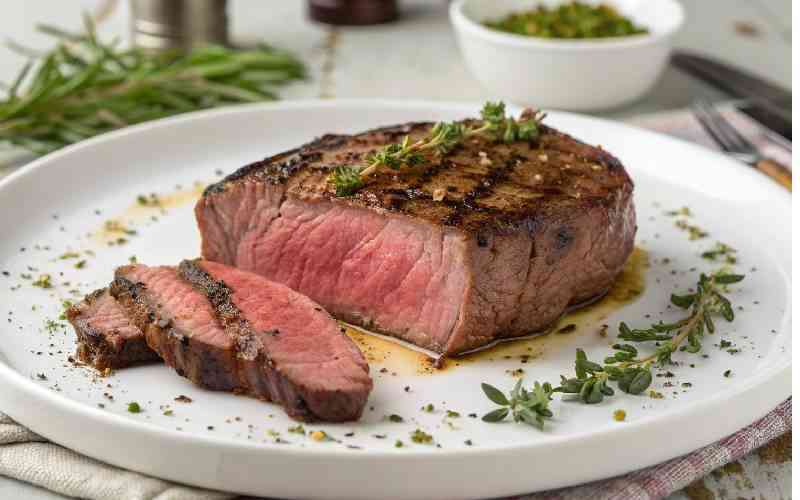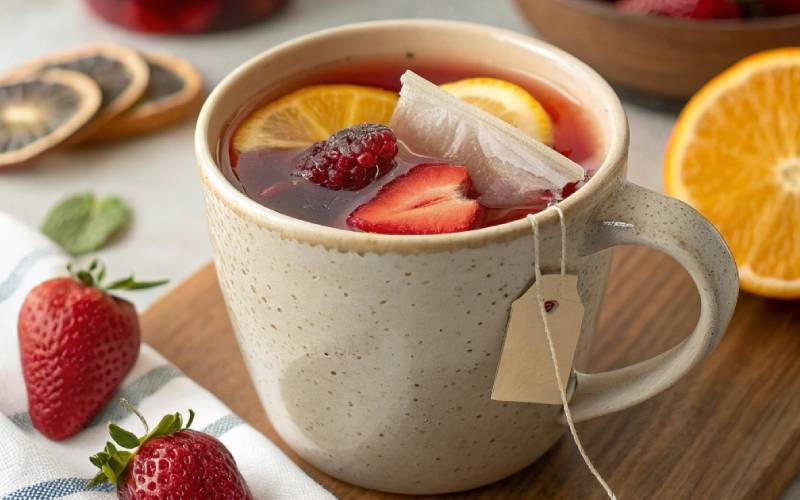
With so many herbal infusion options and their alternative combinations strewn over supermarket shelves and health store counters, it can be intimidating to choose.
This task is made even more daunting by every herbal infusion claiming to heal, hydrate or soothe. But they provide a nice way to stealthily sneak in some medicinal value while increasing your fluid intake.
Three true and authentic teas
And yes, we call them infusions because according to Steven Pratt and Kathy Matthews in their book, 'Superfoods', there exists only three true and authentic teas; black (which includes the 'Kenyan' tea in our cups), green and Oolong tea.
These three types of tea are produced from this single shrub, the ever green Camellia sinensis, the difference being in the way the leaves are processed after harvesting.
Green tea is lightly processed, black tea is made of leaves that have been left to ferment following harvesting. Fermenting darkens the leaves and give black tea a darker flavour while Oolong is partially fermented.
Health Benefits
Faith Kariuki, a nutritionist at Afya Bora nutrition and wellness centre adds; "of the three, green tea confers most health benefits due to more phytonutrients - natural compounds that work with other essential nutrients to promote good health - preserved following the light processing."
Among the benefits of green tea are lowering blood pressure, prevention of cancer and osteoporosis, lowering risk of stroke, promoting heart health, preventing sunlight damage to skin like wrinkles and skin cancer.
While a cup a day can play a significant role in providing these health benefits, it may take as many as four cups daily to really achieve a major decrease in cancer rates.
What to avoid
In 'Superfoods', Steven and Kathy advise that you should avoid steeping the teas (black, green and oolong) in water for longer than seven minutes as this will result in a bitter, unsavoury taste and higher caffeine content. "Consider steeping or brewing for at least three but not more than seven minutes depending on how strong you like your tea," reads a quote from the book.
Kenya Nutritionist and Dietics Institute (KNDI) certified nutritionist Millicent Awinoh adds that besides steeping it for the recommended three-seven minutes, one should not let their tea or herbal infusion sit around for too long after brewing it. "Tannins form as it sits noticeable by it's changing, deepening colour.
Tannins interfere with absorption of key nutrients like iron which is necessary for for blood formation, and you end up anaemic," she warns. In addition, the flavonoids degrade with time, hence best to drink freshly brewed tea that is hot or quickly iced. While brewed tea confers more health benefits than instant tea, you should avoid drinking it extremely hot as this is known to encourage the development of cancer.
Faith also clarifies; "Kenyans should not confuse herbal infusions and flavoured teas. Flavoured teas are developed for their flavouring more than anything else. It is the herbal teas that have the medicinal value."
"Besides the labels, the other thing to look out for to avoid being short changed are the ingredients," she says adding "if the pack shows tea as an ingredient, it is highly likely that it is a flavoured tea and contains caffeine - herbal infusions contain no caffeine. Usually it is the flavour that is added to the black tea. If it mentions only the herbs as an ingredient, go for it.
With that being said, here are the most common herbal infusions.
Lemon
This citrus-fresh ingredient helps tame tension, nervousness and a mild ease of blues. Relax with a cup before bedtime to help you feel sleepy. Adding lemon to your green tea increases the amount of antioxidant catechins your body absorbs as catechins do not live long in non-acidic environments such as the intestines. This combination is the best to fight free radicals and cancer-causing inflammation. Without the lemon, you eliminate up to 80 per cent of the total antioxidants in the green tea cup. Two cups a day are sufficient to increase the antioxidant concentration in the body.
Ginger
Ginger, which is used liberally in Japan - home to the longest-living people in the world - contains nearly a dozen antiviral compounds. It reduces nausea, treats motion sickness, warms the body for those suffering from chills. It is also pain-relieving for sore joints and stomach upsets, antiseptic and antioxidant.
It helps prevent and treats colds, sore throats, inflammation of mucus membranes and other respiratory conditions hence its persistence as an ingredient in many natural cough, cold and nausea treatments. Combine it with lemon juice and honey for a powerful germ-fighting combination.
It also reduces fever and has a mild sedative effect that encourages rest. However, if taken in excess, it can cause irritation in the mouth, heartburn and diarrhoea. Peppermint
It is not only a painkiller for headaches, it reduces fever by inducing sweating, the body's natural cooling mechanism, hence cooling the body.
It helps bring up mucus and other materials from the lungs, bronchi and trachea during bronchitis, colds and the flu hence reducing congestion.
It quells nausea without vomiting by stimulating bile production in the gall bladder, hence breaking down fat in the digestion system.
The powerful phytonutrient in peppermint can also reduce the growth of cancer cells in liver and pancreas.
It also helps ease stubborn indigestion, cramping from diarrhea and bloating from gas. It fights bad breath and reduces heartburn.
It is safe for consumption in early pregnancy to help alleviate nausea.
You can make your own infusion by using fresh herbs from the garden since peppermint is easy to grow though it may overtake your garden if not well monitored. As such, it is recommended that you grow it in its own container.
Cinnamon
It is an all round remedy for any ailment. It contains anti-bacterial, anti-viral and anti-fungal properties. It helps stop vomiting, relieves nausea and increases restricted blood flow hence improved circulation and is a source of immune-boosting antioxidants.
It eases stomach discomfort, bloating, gas and indigestion and also reduces cold symptoms.
Chamomile
A mild relaxing tea with a delicate flavour, it contains oils that relax the smooth muscles in the stomach hence soothing mild nausea and indigestion. Three cups daily will ease indigestion and irritable bowels when taken after meals.
It relieves anxiety, fights insomnia by relaxing the body and mind and was recommended in the 1600s to 'comfort the brain'. It relieves cough from throat irritation.
Unlike other infusions, chamomile should be steeped a little longer to get all the medicinal benefits but should be avoided by people who take blood thinners.
It can be combined with peppermint for more effective results.
Lemongrass
This spiky, easy-to-grow herb (even for those living in apartments as it grows beautifully in a pot and can be grown year round indoors) has anti-bacterial, anti-parasitic, anti-fungal and anti-inflammatory properties.
It calms nervous disorders and anxiety and aids in treatment of high blood pressure.
If one takes a cup daily, it improves circulation as it dilates blood vessels and acts as a mild diuretic to reduce fluid retention.
Often served as an after dinner drink to aid digestion primarily due to the substance called citral – also the active ingredient in lemon peels. It is typically enjoyed unaccompanied by other herbs.
Rooibos
Also known as 'complexion tea' it is rich in vitamin C and other mineral content, promoting healthy skin, teeth and bones. High in antioxidants, it has been known to ward off disease and signs of ageing. It has also been shown to help with common skin concerns like eczema and great longevity.
The powerful antioxidant known as Chysoeriol can improve vascular health by enhancing circulation and lowering cholesterol and blood pressure.
 The Standard Group Plc is a multi-media organization with investments in media
platforms spanning newspaper print
operations, television, radio broadcasting, digital and online services. The
Standard Group is recognized as a
leading multi-media house in Kenya with a key influence in matters of national
and international interest.
The Standard Group Plc is a multi-media organization with investments in media
platforms spanning newspaper print
operations, television, radio broadcasting, digital and online services. The
Standard Group is recognized as a
leading multi-media house in Kenya with a key influence in matters of national
and international interest.





